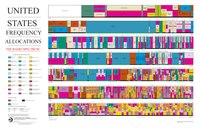
Quartic Riemannian Trust Region Algorithm for Cognitive Radar Ambiguity Function Shaping
Sign Up to like & getrecommendations! Published in 2022 at "IEEE Geoscience and Remote Sensing Letters"
DOI: 10.1109/lgrs.2022.3151679
Abstract: Waveform adaptation grants cognitive radar (CR) the ability to adapt to its environment, which requires an effective framework to synthesize waveforms sharing a desired ambiguity function (AF). In this letter, we propose a novel method… read more here.
Keywords: riemannian trust; ambiguity function; trust region; cognitive radar ... See more keywords

Avoidance of Time-Varying Radio Frequency Interference With Software-Defined Cognitive Radar
Sign Up to like & getrecommendations! Published in 2019 at "IEEE Transactions on Aerospace and Electronic Systems"
DOI: 10.1109/taes.2018.2886614
Abstract: Congestion in the RF spectrum is rapidly increasing, which has motivated the need for efficient spectrum sharing techniques. A cognitive radar system has been developed to implement a perception action cycle, for spectrum sharing, in… read more here.
Keywords: system; time; frequency; cognitive radar ... See more keywords

Evaluation of Real-Time Predictive Spectrum Sharing for Cognitive Radar
Sign Up to like & getrecommendations! Published in 2021 at "IEEE Transactions on Aerospace and Electronic Systems"
DOI: 10.1109/taes.2020.3031766
Abstract: The growing demand for radio frequency (RF) spectrum access poses new challenges for next-generation radar systems. To operate in a crowded electromagnetic environment, radars must coexist with other RF emitters while maintaining system performance. This… read more here.
Keywords: time; spectrum sharing; real time; cognitive radar ... See more keywords

Cognitive radar waveform design with the signal-to-clutter-plus-noise ratio and filtered integrated sidelobe level considerations
Sign Up to like & getrecommendations! Published in 2018 at "Journal of Applied Remote Sensing"
DOI: 10.1117/1.jrs.12.045013
Abstract: Abstract. We deal with the unimodular waveform design for cognitive radar in signal-dependent interference (clutter). In addition to the signal-to-clutter-plus-noise ratio (SCNR), we also consider the filtered integrated sidelobe level (ISL) and optimize these two… read more here.
Keywords: clutter plus; waveform design; radar; signal clutter ... See more keywords

A Bayesian Surprise Approach in Designing Cognitive Radar for Autonomous Driving
Sign Up to like & getrecommendations! Published in 2022 at "Entropy"
DOI: 10.3390/e24050672
Abstract: This article proposes the Bayesian surprise as the main methodology that drives the cognitive radar to estimate a target’s future state (i.e., velocity, distance) from noisy measurements and execute a decision to minimize the estimation… read more here.
Keywords: radar autonomous; state; surprise; bayesian surprise ... See more keywords